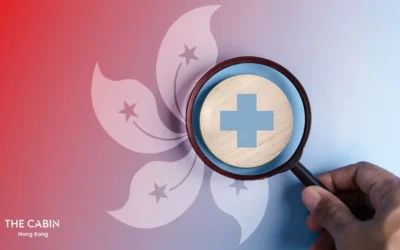While addiction recovery is a positive and transformative undertaking, it is not without its share of challenges – bad days are bound to occur. We share some simple techniques to help you survive them.

Anyone in addiction recovery must understand that addiction is a disorder, not a refusal to say “no.” Therefore, addiction can only be managed, not cured. Staying sober requires effort and time. It often brings up feelings of pain and struggle as well.
However, with each passing day, the struggles become more manageable and daily life starts to become a routine again. You begin to regain trust amongst family, friends and loved ones and function in a different way. As you attend your meetings and counselling sessions and continue working towards your goals, life will begin to head in the right direction.
Some days are overwhelming and it feels as though nothing is going your way. In the back of your mind, you may even consider the possibility of relapse. Any person who has gone through addiction recovery has heard numerous stories about relapse and the struggle it entails. It is a common, and distressing, occurrence. This is why it is important to know the best ways to overcome difficult days during your recovery. The following tips can be used to help you survive bad days and come out on top.
Write it Down
Writing down your feelings can help you process them and put your ideas into perspective. Regardless of your qualms, it is likely that they appear more significant in your mind than they are in reality. Jotting them down can lessen anxiety, pain and anger. A study in 2007 revealed that expressing your feelings with words decreases fight-or-flight response by reducing activity in the amygdala, the part of your brain that triggers a chain of biological reactions. In short, attaching words to your emotions takes away their power to control you.
Some tips for jotting down your thoughts include:
- Writing in the third person – this makes it easier for you to observe what is being said and develop a new perspective.
- Writing a list of gratitude – according to cognitive behavioural therapist Kelly Kitley, writing a gratitude list can “shift your mood” by redirecting focus to things that you appreciate.
This practice can help you process your emotions more skilfully and become more resilient over time.
Speak Up
Having people in your life who support your recovery is a vital part of overcoming addiction. Talking to your counsellor or sponsor, or sharing in group meetings can help you to overcome bad days and to feel less alone. It is also beneficial to have family members and friends that you can talk to. Many people in recovery, however, find that their support group or counsellor is the best option for expressing feelings because they are confidential and understand what they are going through.
Even though any type of counselling for addiction recovery is better than none, group therapy tends to be especially effective. Group therapy allows you to be supported and challenged by your peers. Twelve-step programmes such as Alcoholics Anonymous and Narcotics Anonymous are reputable support group organisations; look for these and other support groups or continuing care programmes in your area.
Tune In
Listening to music is an easy way to shift your mood. Our brains release dopamine when we listen to music that we like, which has an uplifting effect and makes us feel good. Music can even create the same feelings of happiness that we get from having sex or eating chocolate. A 2013 study on music and the healing process found that listening to music produces feelings of nostalgia, and nostalgia helps us feel more positive about the present and more optimistic about the future. Listening to positive music over time can also make us happier in the long-run.
Laugh it Out
A great way to boost your mood is to find ways to laugh, even if it is just for a short amount of time. Dr. Jacob Korthuis, brain researcher at the PMA Institute in Florida, said that even though small amounts of happiness ‘are not permanent solutions to sadness, depression, or mood disorders, they can help get anyone through a bad day’.
A study in 2008 revealed that just anticipating a laugh reduces stress hormone levels, such as epinephrine, DOPAC and cortisol. While laughter subdues stress hormones, it also stimulates endorphin release, which causes feelings of positivity that take over the body and (often referred to as a “rush” of endorphins). This research shows that laughter is not only beneficial to our mood, but to our health as well.
Take a Walk Outside
Walking for just 20 minutes is proven to reduce stress and increase concentration, which helps reduce mental fatigue. According to Debbie Mandel, inner health and wellness expert, a brief stroll can also help by aligning your natural rhythm to nature’s own. “Powerful stress hormones are shed with movement. You change up your energy by shifting to another location, and can think more clearly,” says Mandel.
Being surrounded by green spaces helps restore peace of mind to those who are feeling down. In 2013, a study on the positive effects of outdoor activity on the brain had 12 young adults wear mobile EEG (electroencephalography) caps during a 1.5 mile walk through three different parts of Edinburgh, Scotland: a park, a commercial district and a shopping area. The brainwave results showed that the participants who walked through the park were more likely to experience a meditative state.
Get Moving
Even if you do not enjoy walking, engaging in any type of physical activity boosts your overall health and well-being. Along with helping increase positive feelings on a daily basis, exercise also helps reduce stress and gives us a beneficial outlet for pent up emotions. Exercise increases endorphins, which will leave you feeling good. It can also be considered as an active form of meditation that helps you forget your problems by focusing on movements.
If you start to use exercise as a way to get rid of daily stressors, you might notice that focusing on the task at hand, and experiencing the resulting optimism and energy, can affect your ability to handle stress and stay clear-headed. Additionally, frequent exercise increases self-confidence, relaxes us and reduces symptoms that are common to addiction, such as anxiety and depression.
Exercise improves sleep, which is commonly affected by stress, anxiety and depression. The numerous benefits of exercise can reduce stress levels and help give you control over your body and life.
Hang in There
Though there are bound to be days when you feel overwhelmed, using these and your other coping tools will help keep negativity at bay. Focus on the good in your life and do not give in or give up. Rely on your support tools, friends and family to keep enduring despite temptations and difficult days.
The Cabin Hong Kong offers a variety of addiction counselling services that are suitable for both substance and process addictions. Additionally, our professionally run Relapse Prevention Continuing Care group is available to anyone in addiction recovery; contact us today for more information.


